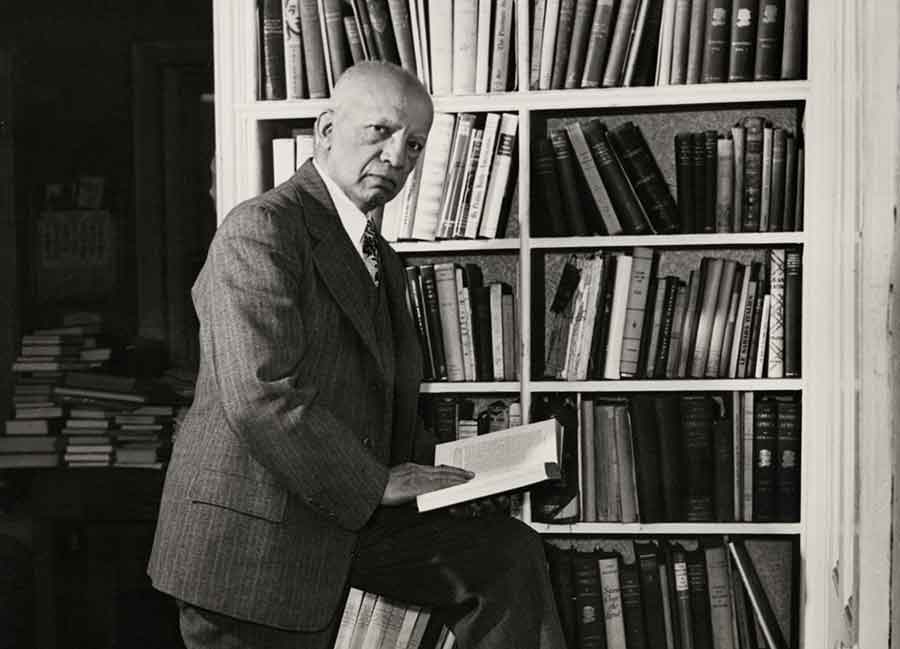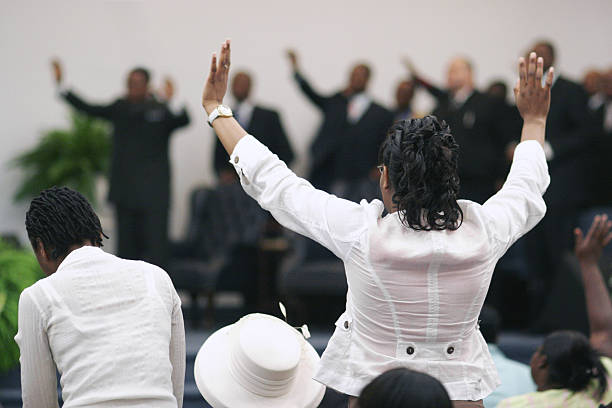(ThyBlackMan.com) A loyal reader recently sent me a communication suggesting an article that addressed “Why African-Americans hate Kenny G so much.” In all honesty, the communication made me laugh aloud. However, my laughter had little to do with the question being ridiculous; rather, the request caused me to revisit inextricable issues such as Race, Jazz, and cultural appropriation. Most painful of all was the fact that this matter forced me to confront Black America’s failure to seize and honor a cultural inheritance that has no intrinsic value to them. Making this matter more disturbing is other racial and ethnic groups recognition of Jazz’s worth. Non-Blacks not only recognize the utility of Jazz Music but also financially profited off of it in a manner that appears to be the blueprint that white music executives and record companies used to pilfer Hip-Hop culture. There is no more illuminating figure in the “theft” of Jazz Music than Kenny G.
As a burgeoning jazz aficionado, I have discovered that the most  expeditious path to evaluating an individual’s sophistication is to ask them who are their favorite Jazz artists. Experience has taught me that Jazz lovers are usually reasonable individuals whose presence is best noted by their desire to share what they know about Jazz, as well as learn about a new artist that may have slipped beneath their radar. Trust me when I say that if you do not have much exposure to Jazz Music,Jazz fans are more than willing to verse you on who you should listen to and why. If nothing else, for newcomers, the world of Jazz will prove to be an exhilarating ride with unexpected twists and turns like a Charlie Parker performance. Along this enjoyable path, one learns what Jazz is and what Jazz is not.
expeditious path to evaluating an individual’s sophistication is to ask them who are their favorite Jazz artists. Experience has taught me that Jazz lovers are usually reasonable individuals whose presence is best noted by their desire to share what they know about Jazz, as well as learn about a new artist that may have slipped beneath their radar. Trust me when I say that if you do not have much exposure to Jazz Music,Jazz fans are more than willing to verse you on who you should listen to and why. If nothing else, for newcomers, the world of Jazz will prove to be an exhilarating ride with unexpected twists and turns like a Charlie Parker performance. Along this enjoyable path, one learns what Jazz is and what Jazz is not.
It does not take one long to learn that the following artists represent what can be easily termed.
- John Coltrane
- Miles Davis
- Clifford Brown
- Herbie Hancock
- Terence Blanchard
- Norman Brown
- Najee
- Art Blakey &the Jazz Messengers
- Lee Morgan
- Thelonious Monk
- Wynton Marsalis
The most difficult thing to comprehend about Jazz Music is that while the music rests on an expansive horizon that never replicates itself, it is a falsity to assert that everything belongs under the Jazz umbrella.
Although the Jazz audience is far from monolithic in musical tastes or yearnings, there is little room to debate against the reality that the surest sign of a faux Jazz listener, meaning an individual who has failed to delve into the musical genre in a substantive way, is for them to list the wildly popular Kenny G as either the patron saint of Jazz or even as someone possessing the ability to produce quality Jazz Music.
Let me be clear on this point. I have witnessed seasoned Jazz aficionados abruptly end conversations after hearing someone offer Kenny G as the purveyor of quality Jazz Music. Other times, I have stared straight into the soul of faux Jazz aficionados who attempted to display their understanding of this African-American musical formthatbegan in New Orleans Congo Square by eliciting the name Kenny G.
The citing of Kenny G as aJazz artist of any note reveals a person’s superficial engagement guided by an unwarranted popularity rested on a rickety, unimaginative, yet functional foundation. Those who cite Kenny G as a notable, let alone significant figure in Jazz reveal themselves as simpletons whose musical tastes are driven by record company marketing campaigns, not the quality of music.
Kenny G’s ascension as America’s premier Jazz artist during the eighties reminds one of the severely overvalued persona known as Elvis Presley.
Most frustrating for Jazz artists who have provided decades of quality music is the fact that Kenny G was neither particularly talented nor entertaining. One is hard-pressed to find anyone with an understanding of Jazz Music who will argue that Kenny G is capable on his best day of holding his own against figures such as Gerald Albright, Joe Sample, Terrence Blanchard, Quincy Jones, Joe Sample, Art Blakey and the Jazz Messengers, Wynton Marsalis, Herbie Hancock, let alone Jazz luminaries such as Coltrane, Miles, Dizzy, Clifford Brown, Thelonious Monk, or Cab Calloway.
Kenny G is the name that easily rolls off the lips of those with an amateurish understanding of JazzMusic. In regards to answering the original question of “Why so many African-Americans hate Kenny G?” the answer is found in Kenny G’s undeserved ascension to the premier position within the Jazz Music world. Along with many of his contemporaries who ascended to the top of the entertainment world by appropriating the styling and art forms of blacks who toiled their entire life with limited commercial success and even more limited material success, Kenny G serves as a reminder of the unfairness of this nation. Put simply; much of the hatred hurled toward Kenny G results from the fact that he definitively proves that America is NOT a meritocracy where hard work translates into success; I often remind my students that if hard work were all that one needed to get ahead in America, Black folk would rule the world.
When one considers that white figures such as Elvis Presley, Kenny G, Justin Timberlake, Adele, and Justin Bieber have made it to the apex of the entertainment industry via a display of talent that at best appears to be a non-black faced Minstrel parody of black culture, the more appropriate question is the following one; “How is it possible that Black America does not hate Kenny G (or any other white star)?”
Staff Writer; Dr. James Thomas Jones III
Official website; http://www.ManhoodRaceCulture.com
One may also connect with this brother via Twitter; DrJamestJones.

















Hey!!! Dig Arthur!!! Digging jazz is a mind altering experience. As a matter of fact many great Jazz artist used mind altering drugs like heroin,LSD,marijuana and alcohol to launch off into that world of sounds that their music now beckons you to enter. Your hesitance to go real deep into jazz is understandable because jazz ain’t tame, and harmoniously consistent. and it sure as hell ain’t safe. Jazz got its start by men and women who were breaking the law. Jazz will make you explore the boogeymen of your mind. redefines logic, and takes you right into mental black holes from which you may emerge enlightened if you ever emerge at all. Be brave, be strong, don’t go into jazz with pre-concieved ideas about jazz, just sit and listen to those notes reverberating through your brain.Jazz is hypnotic, and it takes your mind into outer-space, inner-space, and all spaces in between as testimony of the artistic genius of the African American mind. Hell Arthur, even Einstein’s logic won’t get you through Jazz because you are experiencing the mastery of African American music at its best. We have been taught that we are all the same, but jazz men like John Coltrane, and Miles Davis have proven that we are not.
I think I know what it is. It is the dissonance in jazz. If it is not rhythmic and moving in sync, I get lost.
For many, many years I have tried to appreciate and understand “real” jazz. I liked Coltrane’s rendition of “These Are A Few of My Favorite Things,” that I believe he made relatively early on. But I just can’t understand his later works except for “A Love Supreme.” Miles and Monk I have never really made much headway with. But I am still trying. Just yesterday I started playing Thelonious Monk, and its starting to sound a bit more palatable. So, I guess there is still hope for me.
Jazz is contemporarily defined as a type of music of black American origin characterized by improvisation, syncopation, and usually a regular or forceful rhythm, emerging at the beginning of the 20th century. Brass and woodwind instruments and piano are particularly associated with jazz, although guitar and occasionally violin are also used; styles include Dixieland, swing, bebop, and free jazz.No white person can play,or has ever played real jazz. Jazz is the instrumental musical mimicking of black folk conversations.It is black folk talking put to music.Black folk talk musically, and these sounds can be put to musical notes only as black folk perceive the sounds.All of this has to do with the way black folk are made, and how sounds interact with the color of their skin.Black folk can hear sounds that whites can’t hear, and can create sounds that white folk can’t create. The famous jazz man Louis Armstrong used a handkerchief to hide his fingers when he played the horn so no one could steal his licks.
Is the author saying that no white person can play, or has ever played, real jazz? I ask this not to be critical, but only to further understand the point he is making.
Kenny G plays what is known as ” smooth jazz .” I like my jazz raw,rough, and lumpy. Coltrane, Davis, and Monk feels just fine. Kenny G. feels like ” elevator music.”